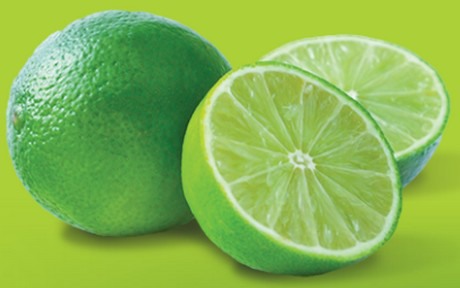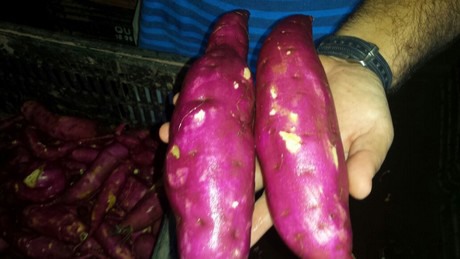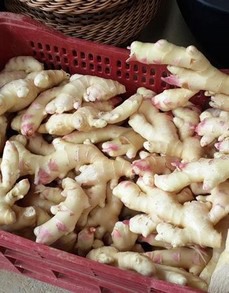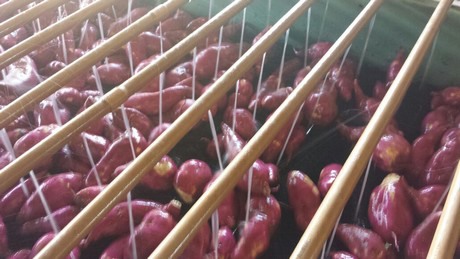
The Persian lime season is about to end in Brazil, and this year the production has suffered a setback because of the weather. The lower production period, between June and August, has lasted longer than usual because of the lack of rainfall, as explained by Marcel Fernando Bertin, of the export company Daros BR. However, the trader assures us that, from late September to early October, the volume of limes will go back to normal.
Citrus canker
Moreover, this season has also been marked by the citrus canker disease. Bertin believes that most producers are aware of the situation and are always working to prevent the disease from becoming a problem again. "Producers are controlling their productions together with the Ministry of Agriculture of Brazil to prevent it from affecting the plantations."

Ginger and sweet potatoes
Daros is a company that exports Brazilian agricultural products to Europe. It works with Persian limes, mangoes, figs, guava and two new products: sweet potatoes and ginger.
The company will start exporting some ginger containers in September. "We already worked with ginger in the past and now a producer has sought us out to work with him." He explains that Brazilian ginger is more expensive, but of good quality, compared with the ginger from other sources. "Furthermore, there is occasionally a market window for Brazilian ginger when there is a problem with the production in China, which falls whenever there is too much moisture."
As for sweet potatoes, Brazil is beginning to export a different variety to that often marketed in Europe. "In Europe, sweet potatoes have an orange pulp, and ours have a red skin and white or yellow pulp. There are many who truly appreciate this variety," states Bertin, adding that it is the sweet potato variety that has always been consumed in Brazil, even though it is new to the European market. Its competitors, the United States, Mexico and Honduras, also cultivate the variety with orange pulp. Other differences include the taste and price, which is cheaper, because Brazil has an enormous production of these sweet potatoes all year round.
 Various regions
Various regionsDaros is a trader and exporter which, until 2015, worked together with the producers. It currently also provides advice to smaller producers who do not speak any foreign languages or who have no contacts with importers in Europe.
The company is based in the state of São Paulo, where it controls a large acreage and has access to the production of various regions. "From October to February, for example, we produce Kent mangoes in Petrolina. At the same time, we are able to grow Palmer mangoes in São Paulo. We are very flexible because the country is very large," he concludes. In São Paulo alone, the company is working with two producers growing limes, another one devoted to mangoes, one more growing tropical avocados and another one cultivating figs and guavas.

More information:
Marcel Fernando Bertin
Daros BRAv. Brasilia 660, Nova Mogi Mogi Mirim, São Paulo, Brazil
T: +55 19 3804 1212
M: +55 19 99381 0077
E:
[email protected]www.darosbr.com The Persian lime season is about to end in Brazil, and this year the production has suffered a setback because of the weather. The lower production period, between June and August, has lasted longer than usual because of the lack of rainfall, as explained by Marcel Fernando Bertin, of the export company Daros BR. However, the trader assures us that, from late September to early October, the volume of limes will go back to normal.
The Persian lime season is about to end in Brazil, and this year the production has suffered a setback because of the weather. The lower production period, between June and August, has lasted longer than usual because of the lack of rainfall, as explained by Marcel Fernando Bertin, of the export company Daros BR. However, the trader assures us that, from late September to early October, the volume of limes will go back to normal.


 More information:
More information:









